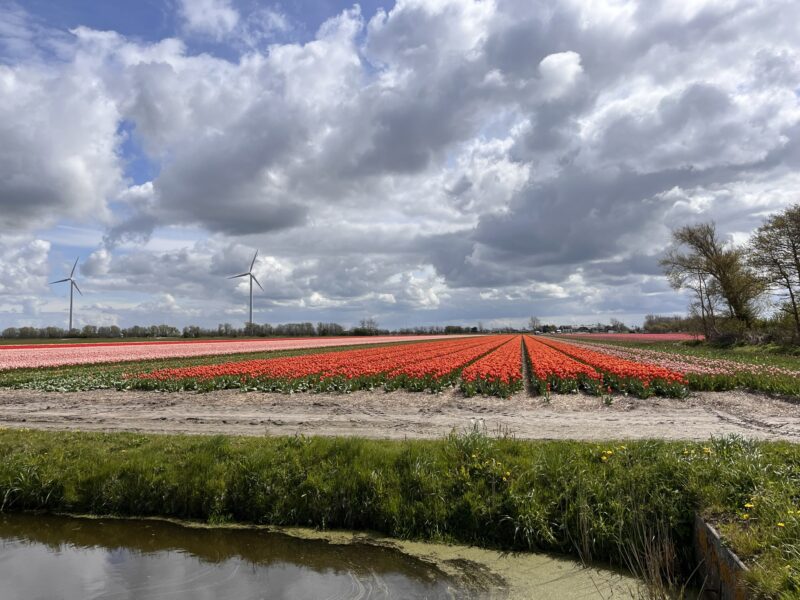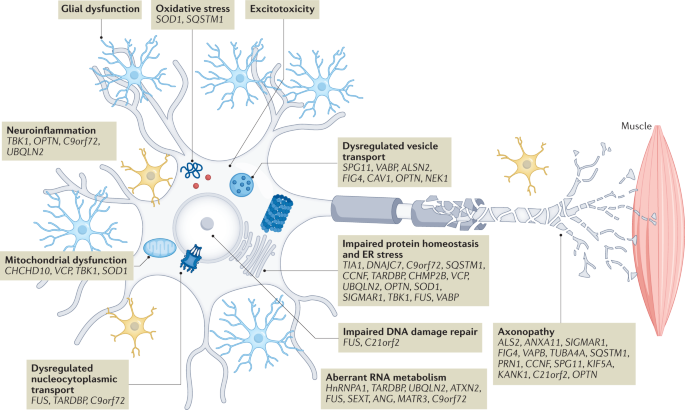
Peter
Forum Replies Created
-
Hi Dagmar, Ferrer published the results of Edavarone trial. Ferrer reports that Phase III ADORE (EudraCT 2020-003376-40 / NCT05178810) clinical trial of oral Edaravone formulation (FAB122) in amyotrophic lateral sclerosis (ALS) patients did not meet primary or key secondary endpoints.
https://www.ferrer.com/en/results-study-ADORE-ALS
As we speak about Edavarone, I would like to know what is the difference about Radicave and ADORE as it is as well Edavarone. Radicava holds 105mg / ADORE used 100mg. I have just seen a statement from the producer of Radicava (https://www.mt-pharma-america.com/media/news/press-releases/2024/01/17/mitsubishi-tanabe-pharma-america-inc-mtpa-statement-on-ferrers-phase-3-adore-clinical-trial-of-fnp122-fab122).
I think the patients should get more details about it. What is your opinion?
-
Dear all, I got the feedback from the study sponsor, that Chalation Therapy will not be possible within the study protocole as the therapy is not approved for ALS. I will step back from the idea making a Chelatherapy. Regards, Peter
-
Peter
MemberNovember 17, 2023 at 6:28 am in reply to: FDA approves tofersen, now Qalsody, as treatment for SOD1-ALSHello, does anybody knows, if BIOGEN is starting / planNing a study with Qalsody for people with the SOD1 mutation without having a diagnosed ALS, as a prevention therapy? Or do you know more about using Qalsody as a ALS blocker? Thanks and best regards, Peter
-
After my diagnosis 2019, I tested my blood for heavy metals and found lead, palladium, thallium, mercury and arsenic levels to be too high. I subsequently did various detoxifications including 5 x blood washing with inuspheresis. The blood values have subsequently decreased and this spring I did a urine test, which compares the heavy metal content in the basic urine and in the DMSA urine. Interestingly, the levels worsened between the spring measurement and the measurement this August, even though I have implemented elimination measures and take many supportive supplements. I have discussed with my doctor that a chelation infusion may be the next therapy to get the heavy metals out of the body. Since ALS can have 60% genetic and 40% environmental influence in triggering it, it is certainly good to get the heavy metals out of the system. Has anyone done tests before and after?
-
Peter
MemberSeptember 13, 2023 at 10:13 am in reply to: What do you think of this new form of Radicava?Hello dear All
I think it is great that the active ingredient is now available in a form that is easier to apply. What I am still missing is, that the description of the efficacy is limited to a small patient group and otherwise the agent is not supposed to have any effect in a large ALS patient group. Since I already received my ALS diagnosis in 2019 (= over 2 years) and suffer from a flail-leg version of ALS that puts me at “0” points (Question with climbing stairs), the agent is not effective in my case, according to the 2017 study. Since 2022 I have the information, that I am carring a ATXN2 gen repeat expension. A review in 2023 reported; the evidence suggests that free radicals play a crucial role in the progression of ALS. Free radicals can harm the central nervous system (CNS) by limited ability to scavenge
free radicals and weak capability for regeneration. Furthermore, reactive oxygen species (ROS) cause genetic mutations by changing the actions of some enzymes, such as superoxide dismutase and glutamate synthetase. The literature supports the oxidative stress hypothesis by concluding that the CNS tissue of ALS patients contained a higher level of 3-nitrotyrosine (3-NT), a biomarker for oxidative stress.
In this context I miss in the evaluation of Edavarone to what extent gene disposition plays a role, patients with SOD1 and SQSTM1 mutations are more at risk for oxidative stress (https://www.nature.com/articles/s41573-022-00612-2/figures/1). Does anyone know if relevant research projects are ongoing on this topic? I myself take a lot of supplements which are supposed to reduce oxidative stress and bind free radicals. Thanks for any links or infos on this subject.I would like to avoid taking a drug that does not harm me but does not bring me any benefits. With very high therapy costs, which I cannot comprehend, the manufacturer would ultimately profit the most.
Thanks and best regards from Switzerland, Peter
-
Peter
MemberFebruary 27, 2024 at 5:35 am in reply to: What do you think of this new form of Radicava?Ferrer published the results of Edavarone trial. Ferrer reports that Phase III ADORE (EudraCT 2020-003376-40 / NCT05178810) clinical trial of oral Edaravone formulation (FAB122) in amyotrophic lateral sclerosis (ALS) patients did not meet primary or key secondary endpoints.
https://www.ferrer.com/en/results-study-ADORE-ALS
As we speak about Edavarone, I would like to know what is the difference about Radicave and ADORE as it is as well Edavarone. Radicava holds 105mg / ADORE used 100mg. I have just seen a statement from the producer of Radicava (https://www.mt-pharma-america.com/media/news/press-releases/2024/01/17/mitsubishi-tanabe-pharma-america-inc-mtpa-statement-on-ferrers-phase-3-adore-clinical-trial-of-fnp122-fab122).
I think the patients should get more details about it. What is your opinion?
ferrer.com
Ferrer reports top-line results from Phase III ADORE study in ALS | Ferrer
Ferrer reports that Phase III ADORE (EudraCT 2020-003376-40 / NCT05178810) clinical trial of oral edaravone formulation (FAB122) in amyotrophic lateral sclerosis (ALS) patients did not meet primary or key secondary endpoints.
-
-
I found out through genetic testing that I have a repeat gen expansion on the ATXN2 gen. This gene mutation was found to be a risk for ALS. I was able to enter a trial, BIIB105, this fall at UMC in Utrecht, Holland, which is testing an antisense drug in phase 1. Sponsor is BIOGEN and more details can be found at: https://clinicaltrials.gov/ct2/show/NCT04494256. Even though this ATXN2 mutation only occurs in 3.9% of ALS patients, I think it is great that I may experience an effect by participating in the study. I recommend a whole gen screening to all ALS patients.
-
Hello, for many people affected by ALS it is not easy at the beginning to address the large audience. If someone finds the courage and strength to do so, should it be supported. In this days, it is unfortunately the case that you have to be loud in communication in order to be heard. If someone already has a large base of listeners, the volume can be turned down accordingly or one reaches more. I am urgently looking for people who can spread #steps4ALS in their network to raise awareness for ALS and raise funds for research. John would be a perfect person to do so.
-
Dear Amanda, could it be, that in the first post, he spoke about https://clinicaltrials.gov/study/NCT04768972? Have a great day and best regards from Switzerland, Peter
-
Dear Dagmar,
My post is based on the article in Nature. https://www.nature.com/articles/s41573-022-00612-2#Fig1 about the research summary (Spring 2023).
Thank you for the overview of the risk factors for ALS that I am aware of. Related to my person, I find some points to which I have been exposed during my life; I smoked moderately until age 42 -15 years ago, had some electric shocks, was a figure skater for 10 years and hit my head a few times, had a car accident and and…. otherwise I was head of a trading company for over 30 years and mostly in the office or driving to customers – as not a big exposure and exposure to toxic substances. To what extent stress had an effect I can not judge – as a self-employed person with his own company is certainly more susceptible to stress. I think that we have to look at the causes of ALS in a more causal way. At the moment we know about the possible ALS genes that can be a trigger or a risk for ALS. In genetic research, as far as I am informed, one is not yet so far that one can capture all gene activities. What one captures today are the genes that show peaks in this corridor – peaks. What is in the general gene noise corridor level and what interactions with toxic substances, this is still largely unexplored. I recommend that the parameters of ALS patients be further recorded and evaluated. I know from myself that I carried a risk with a genrepeat expansion of the ATXN2 gene, which has now broken out. So far I have not found any information why ALS has broken out. Could this be factors that have accumulated during my lifetime, e.g. toxic exposure, could an electric shock have affected the reading mechanism, or the interaction of different genes to maintain a function? As a Swiss, I am participating in the ALS TDI study. My blood values and vital signs are not included because I do not live in the US. I am not aware of any research project in Switzerland or Europe where a whole-genome sequencing (WGS) analysis, blood values, vital signs are compared with history. My vital history was collected as part of a study in Switzerland. For the blood values (burdens) with the vital data the orthodox medicine is not interested. Here I suggest a worldwide recording of as many ALS patients as possible with as much data as possible, so that one could also pursue new ideas. If someone has more info on this topic, thank you very much. Interesting is also the contribution in the research blog; “Why is there almost no research on neurotoxins as a possible cause?,” thanks everybody and sunny wishes to everyone from Switzerland, Peternature.com
Amyotrophic lateral sclerosis (ALS) is a devastating neurodegenerative disease affecting motor neurons. In their Review, Shaw and colleagues provide a comprehensive picture of the various pathological mechanisms involved in this complex disease, and discuss the deep and diverse pipeline under … Continue reading

